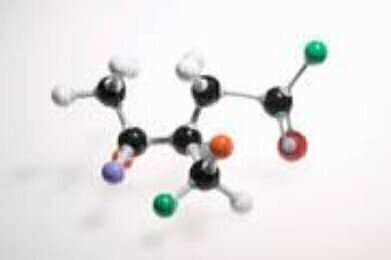-
 Molecule offers new advances in pancreatic cancer
Molecule offers new advances in pancreatic cancer
Bioanalytical
Molecule offers new advances in pancreatic cancer
May 21 2014
A study, published in Molecular Cancer Research, has identified an enzyme that could play a significant role in how severe pancreatic cancer is in a patient.
The researchers at the Mayo Clinic say the discovery provides key insights into the most aggressive forms of the disease, which is one of the biggest killers in terms of cancer. It offers a number of potential clinical advances for the future, such as an indicator to a patient's outcome or therapy options to shut down the Rac1b enzyme.
Dr Derek Radisky, a researcher at the Florida clinic and senior investigator of the study, said: "The implication from our research is that Rac1b is activating unique pathways in pancreatic tumours that make this cancer aggressive. If we can therapeutically target that pathway, we may be able to have an impact on this very difficult-to-treat disease."
However, future research would need to identify a potential drug target within the cancer-causing pathways activated by Rac1b, as the enzyme itself is difficult to isolate as it is involved in many normal biological processes, according to Dr Radisky.
RAC1 proteins, which are crucial for cell growth and movement, have been linked to other cancers, such as melanoma and non-small cell lung cancer, but this study is the first that identifies a link between Rac1b and pancreatic cancer.
Dr Radisky and his team at the Mayo Clinic are working to further analyse the role of Rac1b in the progression of pancreatic cancer.
As part of their research, the team investigated the link between pancreatic cancer cells and matrix metalloproteinases (MMPs), which are enzymes produced to break down the substance that keeps cells together in tissue or a tumour. MMPs enable cancer cells to spread from the tumour but most are made by cells that surround and support a tumour, according to Dr Radisky.
Using a combination of human tissue biopsies, novel transgenic animal models and cell culture studies, the researchers established a link between MMP3 and the activation of Rac1b. The team then used human pancreatic cancer biopsies to "significantly associate" it with the progression of the disease.
Digital Edition
Chromatography Today - Buyers' Guide 2022
October 2023
In This Edition Modern & Practical Applications - Accelerating ADC Development with Mass Spectrometry - Implementing High-Resolution Ion Mobility into Peptide Mapping Workflows Chromatogr...
View all digital editions
Events
Jan 20 2025 Amsterdam, Netherlands
Feb 03 2025 Dubai, UAE
Feb 05 2025 Guangzhou, China
Mar 01 2025 Boston, MA, USA
Mar 04 2025 Berlin, Germany













